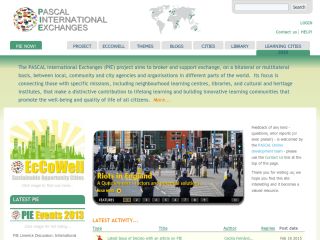Lifelong Learning (LLL): does the term still give good service?
A new theme Forum is proposed. I hope that it will begin with critical analysis of the way that we now use the language of LLL, and develop into a more far-reaching dialogue about – and extending beyond – its place in the new thinking that we need for long-term healthy survival. This is not only the Crisis of Western Democracy which we have begun to address. It concerns also our crisis of our eco-system. Can we quick-learn our way toward healthy, sustainable global survival?







PASCAL’s annual conference in Catania set itself the challenge question: In the end it is education and lifelong learning that are the critical catalysts for sustainable regional regeneration. Is it so – and how? It did not come up with a convincing answer; as in Don McLean’s poignant American Pie “The courtroom was adjourned, no verdict was returned”.
Pascal Board Chair Josef Konvitz on the other hand closed the Conference with the challenge of our failure to adapt well to a new post-Financial Crisis low-growth era when national sovereignties have been weakened, innovation and infrastructure are starved of resources and the use of fiscal and monetary tools is exhausted. Regions he sees as key to recovery; but where is the lifelong learning?
Certainly lifelong learning (LLL) remains core to our professional discourse. Two meetings at the RMIT EU Centre in Melbourne two months later took it as axiomatic: the Seniors as Lifelong Learners Inclusion Workshop within Pascal’s Learning Cities programme on 30 November; and immediately, a following two-day Conference of the Asia-Europe Meeting (ASEM) Lifelong Learning Hub on Asian and European policies and practices for engaging young people in lifelong learning.
For now a separate note returns briefly to the Seniors’ Seminar. I hope to say more soon about LLL principles and policies as canvassed in Asian and European policies and practices for engaging young people in lifelong learning. This raises the way we use the LLL family of terms; and the extent to which it helps to advance our thinking, and our practice.